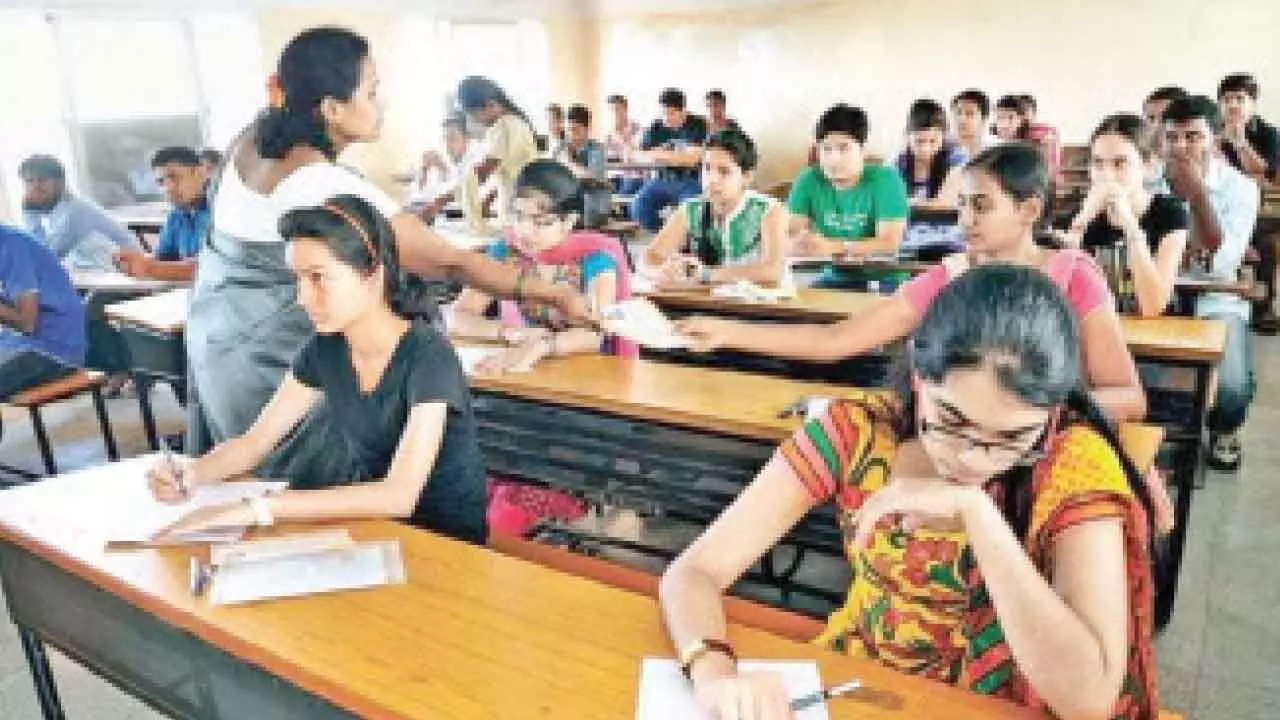Higher Education Saga-II: NET vs. SET for PhD admissions

Hyderabad: The conflicting stands are hitting hard the research and development in building the standards of education and research and development in the State universities.
The issue has come to light following the University Grants Commission's (UGC) recent letter to the State and the Central Universities that they need not conduct a separate entrance test for admission of students into the PhD courses.
Like several states, Telangana has not arrived at any decision so far. Speaking to The Hans India, a senior official from the Telangana Higher Education Department said, "Neither it was objected nor agreed to implement the UGC's letter and it was up to the State government to decide." However, the issues involved have been brought to the notice of the state government.
Firstly, the reason for the UGC was that there is no need for a separate entrance for the PhD since it is already conducting the National Eligibility Test (NET) for the Junior Fellowship and Recruitment of Assistant Professorship examination.
On the other hand, the students at the state universities from Telangana object to it as the national-level test is tough compared to the state-level PhD admission test. Given the standards expected to attempt the national level test only benefit the few of the privileged studied in the elite institutions and marginalise those coming from the humble backgrounds studied in their respective mother tongue mediums.
The UGC's reasoning comes under questioning as earlier too the State universities were giving first preference in the admissions to the candidates qualified in the NET-JRF examination. Followed by, in the second category, candidates who have only qualified for the NET without fellowship and the State level admission test (SET) and then the University Level Entrance Tests (ULET).
The fast-changing landscape in the higher education sector is what might have promoted the UGC to come up with its reasoning to prescribe the national level test for all the universities since the UGC has changed its eligibility criteria for the NET entrance examination. Until recently, only those who had completed their postgraduate courses 55 per cent were allowed to take the text. However, now students can take the NET after completing their undergraduate courses like BA, BSc, BCom and the like. "It will bring fresh and young into the research streams making the research activity at the universities more vibrant and productive with younger scholars taking up the teaching." The change is always a welcome sign, says a former Professor of Political Sciences from Osmania University. Adding, he questioned if the criteria for the state-level entrance test should also change the eligibility criteria allowing those who completed the undergraduate courses to pursue a PhD? Given the current standards of the syllabus taught in non-technological and science streams, "it will create a hell of time for the teachers to guide them," he said.
When asked further, he opined that the current situation in the state universities is such that students after their postgraduation are not in a position to come up with original ideas of research topics. For example, a student from political science comes up with an idea, believing the federal structure in which states formed into the 'United States' is the same as the federal structure of India. It might be good for politicians to talk by blurring the fundamental principles and differences between the USA and India's federalism. However, when it comes to serious academic research works, the two federal structures stand on different constitutional pedestals, he pointed out.








